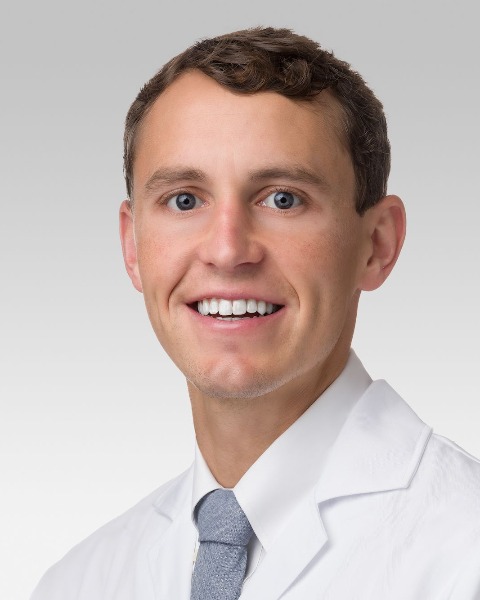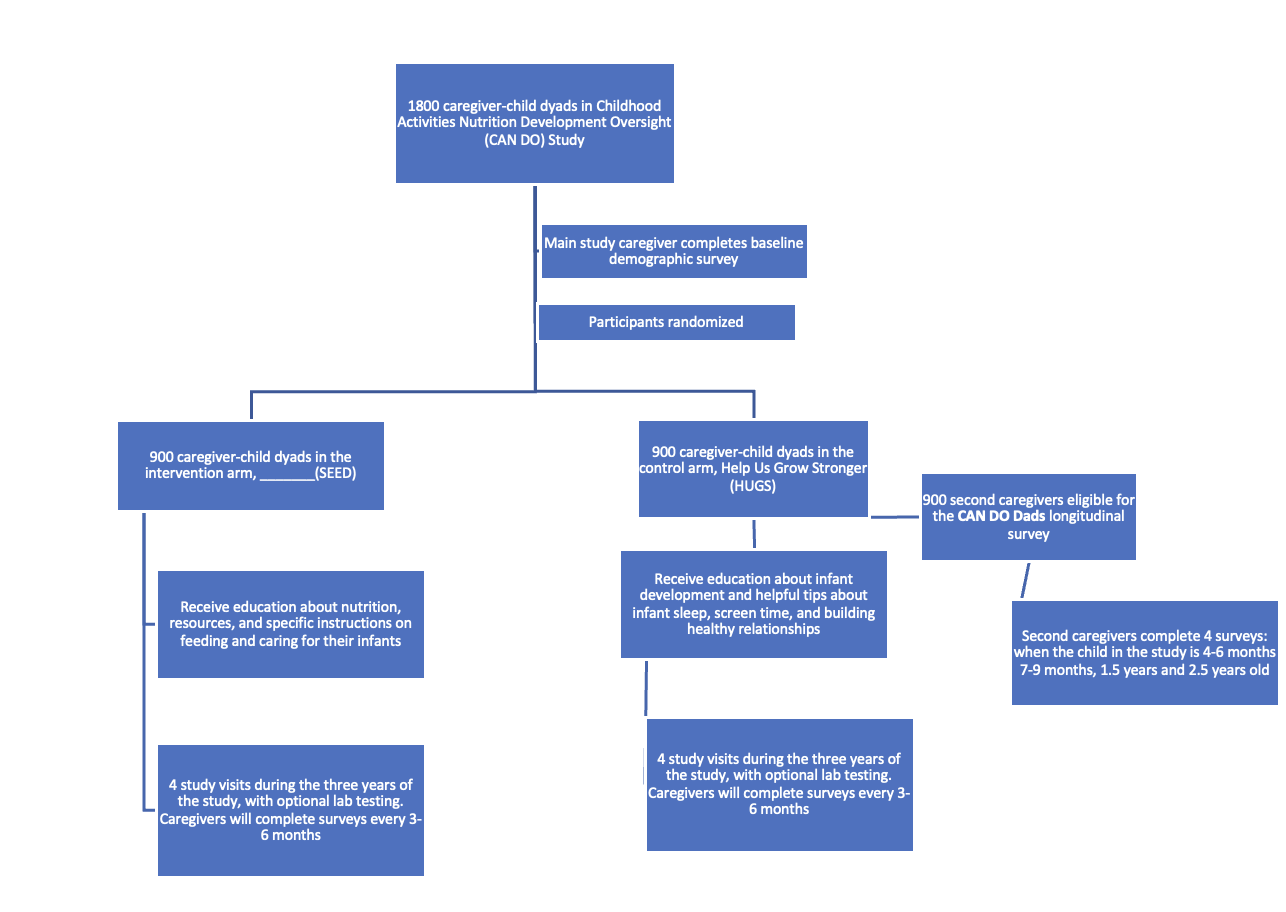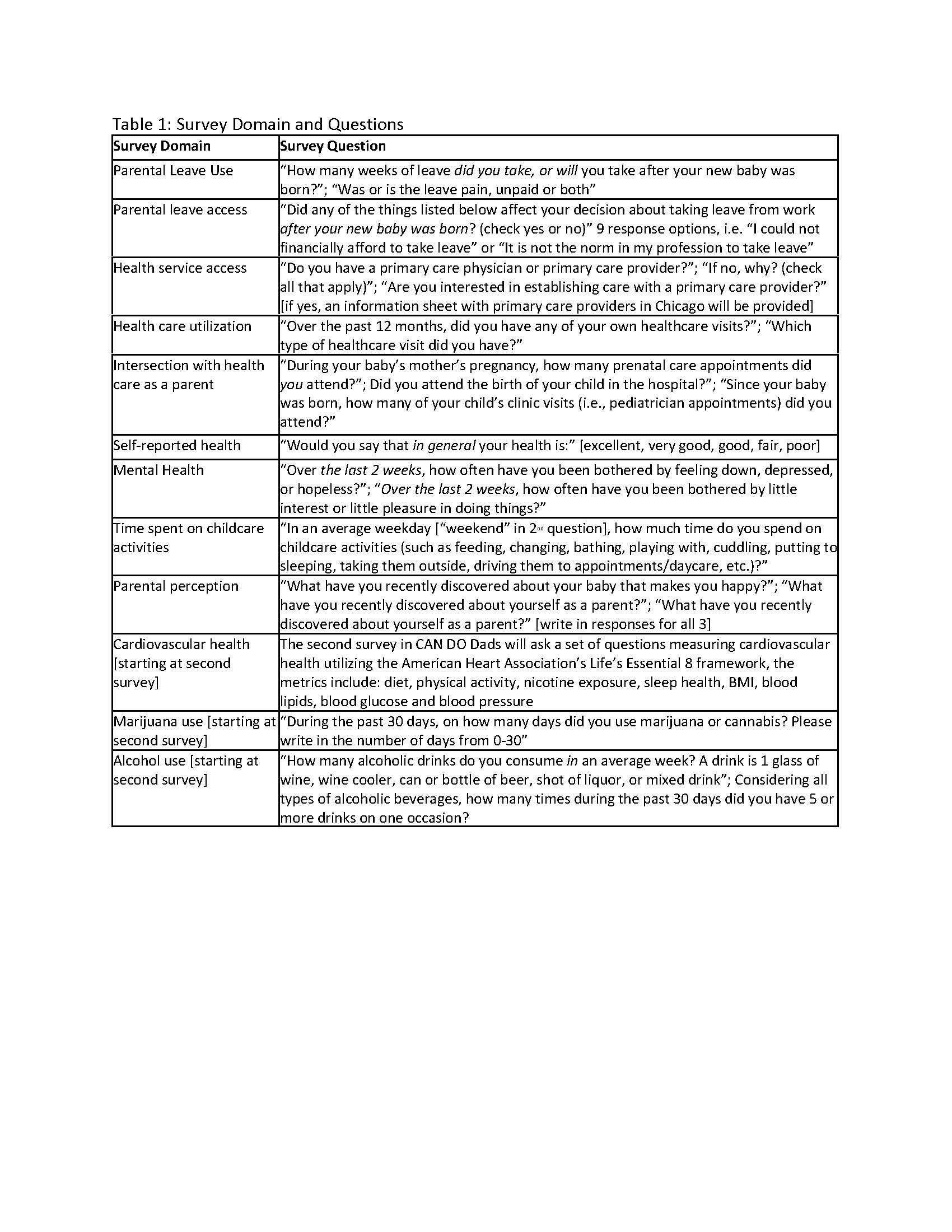Health Services Research
Session: Health Services Research 2: Novel Methods and Disparities
308 - CAN DO Dads: A novel longitudinal study of fathers
Saturday, May 4, 2024
3:30 PM - 6:00 PM ET
Poster Number: 308
Publication Number: 308.1232
Publication Number: 308.1232

John James F. Parker, MD, MS (he/him/his)
Assistant Professor
Lurie Children's Hospital and Northwestern University
Chicago, Illinois, United States
Presenting Author(s)
Background: Despite the growing recognition of the critical contributions of fathers to the health and development of families, in pediatric research only 1% of surveys are father-directed compared with 57% that survey mothers only. Additionally, the transition to fatherhood is a key moment in the life course of men and is associated alterations in men’s health, yet new fathers are typically not the focus of clinical or public health interventions.
Objective: To 1) evaluate the influence of men’s health, family leave uptake and paternal involvement in childcare with child health outcomes and 2) examine trends and predictors of fathers’ health behaviors and outcomes in the years following the birth of a new child.
Design/Methods: This study, CAN DO Dads, is an ancillary study to the Childhood Activities Nutrition Development Oversight (CAN DO) Study. CAN DO is an ongoing randomized controlled trial conducted in Chicago, that evaluates if providing health specific education to caregivers can promote healthy child development. After enrollment, CAN DO participants will complete a baseline question that asks demographic information about each caregiver and several child health outcomes. CAN DO Dads will recruit a second caregiver from the 900 participants in the control arm (Figure 1) and will administer 4 surveys over the 3-year period. The survey domains and questions addressed in the survey are listed in Table 1. Our analysis will examine the health service utilization of fathers for their personal health and their participation in child’s healthcare appointments. We will conduct multivariable regression to measure the association between family leave utilization and three outcomes 1) fathers self-reported health 2) fathers mental health outcomes and 3) time spend in childcare activities. The CAN DO Dads recruitment is expected to begin in November 2023 upon IRB approval.
Results: Among the 440 child-parent dyads enrolled in CAN DO, 60% (n=266) had both parents as primary caregivers, 36% (n=159) had mother only caregivers, 1% (n = 4) had father-only caregivers. Among the 270 fathers with available demographic data, 271 (69.3%) had ≥college degree, 66 (18.1%) were Black, non-Hispanic, 49 (13.5%) Hispanic and 211 (57.8%) White, non-Hispanic. Most fathers were overweight (39.6%) or obese (18.0%).
Conclusion(s): The CAN DO Dads study will provide novel longitudinal data of fathers and other caregivers that will allow researchers to examine the growing influence of men’s health and paternal caregiving on the health of families.

.jpg)

